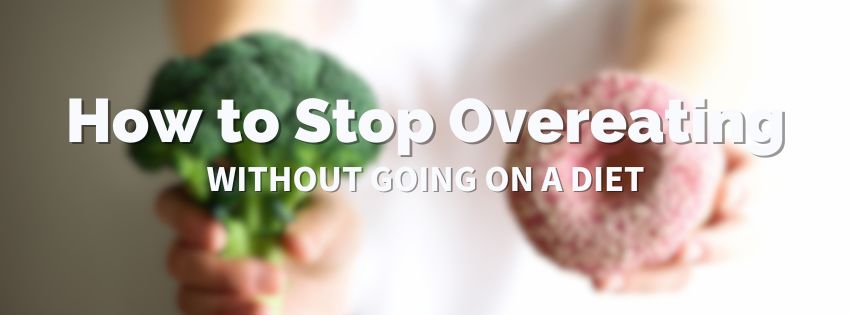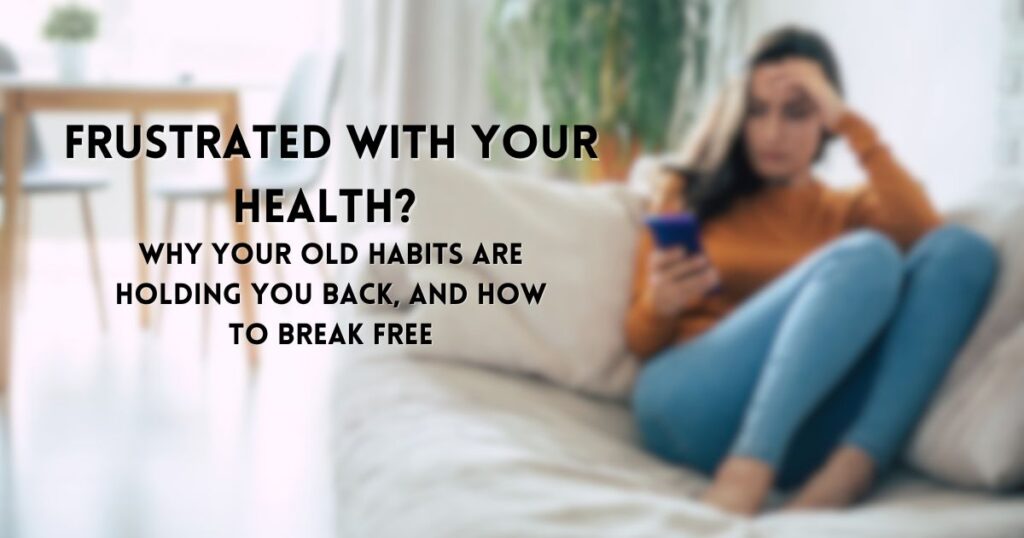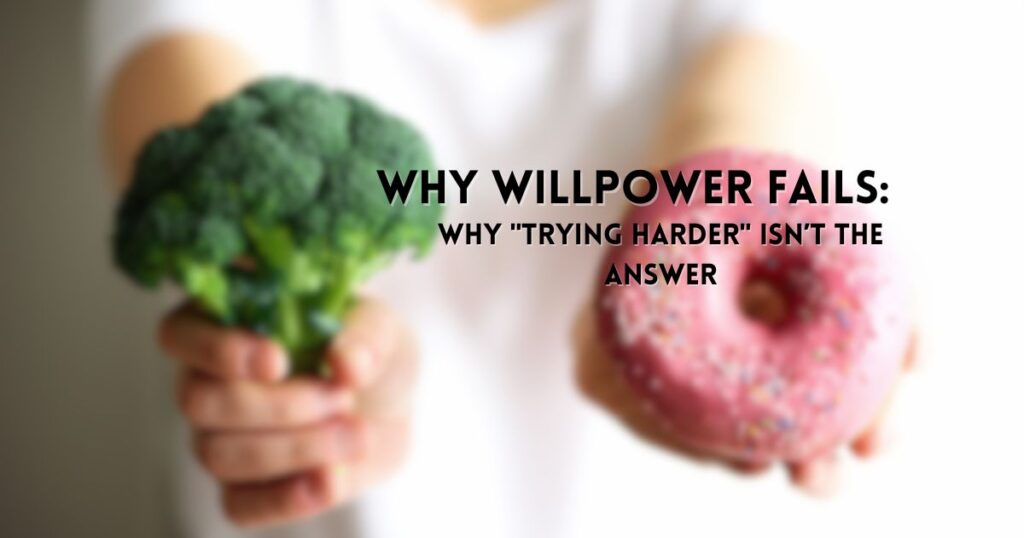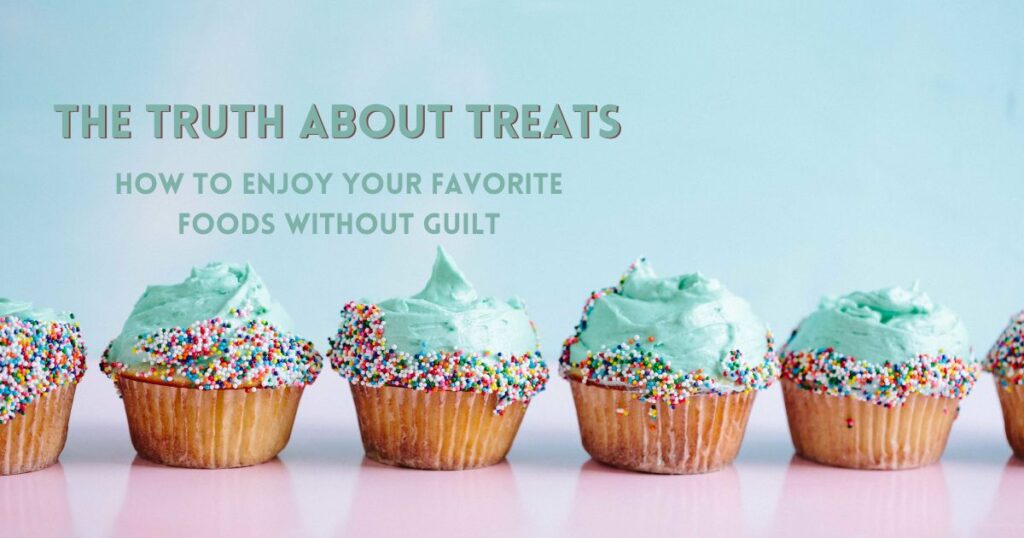I was standing in the beverage aisle at Costco—half out of patience, half out of hope—searching for my usual sparkling water. Not because it’s magic or detoxifying or anything ridiculous like that. I just like the fizz. It breaks up the flat water monotony. But if I drink too much, it gives me GERD. So I’m picky. Anyway, I hadn’t seen it in weeks. I was scanning the shelves like a hawk, when a woman I knew—a local restaurant owner—walked by. I asked if she’d seen it in stock somewhere else. Before I could finish, she spotted the brand I’d brought from home and said: “Oh my god, that one? That stuff is TERRIBLE for you. I’d never drink that. It’s so highly mineralized—it’s the worst one.” And I just stood there, blinking. I wasn’t even buying it. But somehow, I was now under nutritional cross-examination for a bottle of Read More . . .
How to Stop Overeating
Why You’re Overeating (Even When You Know Better) You’re not lazy.There’s nothing wrong with you And no, you don’t need another damn diet. But if you’re like most of the women I work with, you still find yourself in the kitchen most nights, rummaging through the fridge like you’re going to find answers behind the almond milk. You ate a balanced dinner.You’re not physically hungry.But you’re standing there, eyeing that chocolate or the leftover pasta like it’s a lifeline. Sound familiar? This is what emotional eating in midlife often looks like.It doesn’t always show up as a dramatic binge. Sometimes it’s quiet, just a little bite here, a few crackers there. But it adds up. Not just on the scale (although let’s be real, that’s part of it), but in how you feel. Physically heavy. Mentally foggy. Emotionally worn out. And you beat yourself up.Because you know better. You’ve read Read More . . .
Frustrated with Your Health? Why Your Old Habits Are Holding You Back, And How to Break Free
If you’ve ever thought, I should be able to do this—exercise more, eat better, lose weight—you’re not alone. But what if the problem isn’t your willpower? What if the real issue is the unrealistic expectations you’ve been holding onto? Instead of forcing yourself into a plan that doesn’t fit your life, it’s time to meet yourself where you are. In this post, I’ll show you how small, achievable changes can lead to big health results, without guilt, frustration, or burnout. Read More . . .
Why Willpower Fails: And Why “Trying Harder” Isn’t the Answer
Are you a successful woman in your 50s, navigating the unpredictable waves of peri/menopause while juggling career, family, and personal aspirations? You’re not alone. Many women at this stage feel frustrated by weight fluctuations, low energy, and the constant mental chatter around food and body image. Despite trying countless diets and workout plans, sustainable results seem out of reach. But what if the solution wasn’t another quick fix or restrictive plan? What if it was about understanding you —your unique needs, emotional patterns, and lifestyle challenges—and creating lasting change from there? Read More . . .
The Truth About Treats: How to Enjoy Your Favorite Foods Without Guilt
The holidays are over, but the treats? They’re still lingering. Leftover cookies on the counter, chocolates in the pantry, and that tin of toffee someone gifted you. January can feel like a tug-of-war with sugar cravings as you navigate the indulgences of the past few weeks. If you’re feeling out of control around treats, you’re not alone. Guilt and frustration can creep in when sweets seem to call to you. But here’s the good news: you can reset your habits and enjoy your favorite foods without guilt or feeling like they control you. I know this because I’ve been there. Years ago, I found myself obsessing over a cake at a party, consumed with thoughts like, Can I eat it? Will people notice? Will they judge me? When the cake was gone, I felt both disappointed and relieved—disappointed I didn’t get any, but relieved I didn’t have to fight myself Read More . . .
Why goals might not get you to your goal
There are no shortage of memes about goals. “A goal without a plan is just a wish” “Set your goals high, and don’t stop until you get there” “Goals that are not written down are just wishes” Aaaah! They’re endless! Not only were goals a huge part of my early success with my weight, but they were a cornerstone of my health coaching business for a long time. I would teach folks about SMART Goals. How to create them, and help them through the process. But I’ve changed my attitude about goals. I don’t think they’re necessary anymore. I have a client who’s daughter is one of the most disciplined kids that I know. Every year, she’d create New Years Resolutions, and actually complete them! I Know! Who does that?!? I think they were tests of her willpower. When she was in high-school, she created a New Years Resolution to perform Read More . . .
Why You Should Make New Years Resolutions in September.
Although I realize that January is the beginning of the calendar year, and folks like to make health resolutions at that time of the year, but I think it’s a terrible idea. It’s no wonder that by Superbowl weekend, most resolutions are broken and forgotten. There are many reasons why resolutions go by the wayside: often times they’re vague (I’m going to get healthy!), or overambitious (I’m going to start running every day – even though I haven’t run a mile in 5 years), or there’s just no real planning behind the resolution (HOW are you going to get healthy? What steps are you going to take to accomplish that?). When looking at people’s behaviors and what factors make them change their habits, researchers discovered that many folks changed their habits after a major life event. They didn’t even realize that they were doing it. But when their life changed due to Read More . . .
How can meditating possibly help me lose weight?
I don’t know why, but I’m reluctant to admit that I meditate. It just seems so new-agey, and I am so NOT new-agey. Because it’s not like that. The vision that you have in your head right now? Yep – nothing like that. What is it then? I guess it’s just breathing to me. But paying attention to breathing with the intent that I’m not focusing on anything else. About once a day, (but there have been periods where I’ve totally forgotten to practice – for like weeks!) I just sit, wherever I am, and pay attention to my breathing – and then, as I’m doing it, I’ll also check in with my body. I start with trying to match the length of my inhale and exhale. Then I’ll try to make them last to a count of 4. Sometimes, to start, I repeat, “In, two, three, four. Read More . . .
What do elephants and cancer have to do with my fat-loss journey?
In thinking about how the cancer had destroyed my mom’s body, it occurred to me that in order to avoid this disease, I needed to prepare my body so that it would be able to fight off any disease that it might encounter. Not only did I need to get down to a healthy weight, but I also needed to eat better quality of foods, become active, and well, become a responsible adult. Read More . . .
How to dump crappy habits
Anyone who says that the issue of obesity, weight management and fitness is all about knowing what is/is not good for you, or about willpower is over-simplifying the problem, and hasn’t fully grasped the gravity of the issue. It is a hugely complex issue because it all starts in the brain, and the brain is a hugely complex organism. We all do things that we know don’t serve us in our goals, and yet, we often find ourselves powerless to change. It doesn’t matter if we’re talking about eating habits, spending money, smoking, or some other habit that we want to change. In Kelly McGonigal’s audio program, The Neuroscience of Change, she talks about our destructive habits. Destructive habits are things that we do that either don’t serve us any longer, or are getting in the way of things we do want in our lives. It could be smoking, eating Read More . . .




